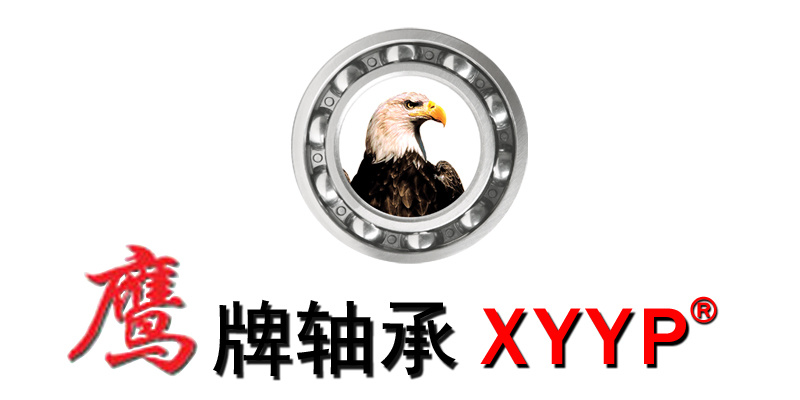Types and Selection of Bearing Lubricants
2025/06/04
Bearing lubricant is a key factor in ensuring the normal operation and extending the service life of bearings. Its performance directly affects the working efficiency and reliability of the bearings. It mainly plays a role in reducing friction, reducing wear, heat dissipation and cooling, sealing and dust prevention, and preventing corrosion.
Currently, there are three main types of commonly used bearing lubricants: lubricating oil, lubricating grease, and solid lubricants.
Lubricating oil is a liquid lubricant with good fluidity and strong heat dissipation capacity. It can quickly form a uniform oil film on the bearing surface, effectively reducing the friction coefficient. It is suitable for high-speed, high-temperature, or bearing conditions that require good heat dissipation, such as bearings in automobile engines and large motor bearings. However, lubricating oil has relatively poor sealing performance and is prone to leakage, which can lead to lubrication failure. Therefore, good sealing devices are needed during use.
Lubricating grease is a semi-solid lubricant composed of base oil, thickener, and additives. It has high viscosity, strong adhesion, and can form a stable lubricating film on the bearing surface. It also has excellent sealing performance and can effectively prevent dust, moisture, and other impurities from entering the bearing. Lubricating grease is suitable for medium and low-speed, heavy-load, and harsh working environments, such as bearings in mining machinery and cranes. However, its heat dissipation is not as good as lubricating oil, and it is prone to softening and loss due to increased temperature at high speeds, so it is not suitable for high-speed bearings.
Solid lubricants are some solid materials with low friction coefficients, such as graphite, molybdenum disulfide, and polytetrafluoroethylene. They are suitable for some extreme conditions, such as high temperature, high pressure, high vacuum, or occasions where liquid or semi-solid lubricants cannot be used, such as bearings in spacecraft and some bearing components in nuclear reactors. Solid lubricants can be attached to the bearing surface through methods such as coating, sputtering, and embedding to form a solid lubricating film to provide lubrication.
When selecting bearing lubricants, various factors such as bearing type, speed, load, operating temperature, and operating environment need to be considered comprehensively. For example, for high-speed, light-load bearings, lubricating oil with lower viscosity is usually selected; while for low-speed, heavy-load bearings, lubricating oil or grease with higher viscosity is more suitable. If the bearing operates in a high-temperature environment, a lubricant with good high-temperature stability should be selected; if there is moisture or corrosive media in the working environment, a lubricant with rust and corrosion prevention properties is needed.
In addition, regular replacement of lubricants is also an important measure to ensure good bearing lubrication. Lubricants will gradually age and deteriorate during use, losing their original lubricating properties, and impurities will also be mixed in, increasing bearing wear. Therefore, a reasonable replacement cycle should be established based on the bearing's operating conditions and the lubricant's service life, and new lubricants should be replaced in time to ensure the normal operation of the bearings.
Related Blogs
Discover the Power of the Truck Unit: A Game Changer for Transportation
Explore the innovative features and benefits of the Truck Unit, designed to transform your transportation needs. Learn more now!
2025/10/06
Unpacking the Truck Unit: How It Works and Why It's Essential
Discover the inner workings of a truck unit and its significance in the transportation industry.
2025/10/05
Navigating the Common Questions About Your Truck Unit
Discover the most common questions about truck units, from maintenance to performance tips, and become a pro on the road!
2025/10/04
Exploring the Versatile Applications of Truck Units in Modern Logistics
Discover how truck units are revolutionizing logistics and transportation with their diverse applications.
2025/10/03
Navigating the Latest News on Truck Units: What You Need to Know!
Stay updated with the latest trends and insights about truck units in the logistics industry.
2025/10/02
Driving Success: The Versatile Role of Truck Units in Industry
Explore how truck units revolutionize various industries with real-world examples and insights.
2025/10/01
Revving Up the Truck Unit Industry: Trends and Innovations
Explore the latest trends and innovations in the truck unit industry, from technology advancements to market dynamics.
2025/09/30
Innovative Solutions for the Truck Unit Industry: Navigating Challenges with Ease
Explore cutting-edge strategies and insights for the truck unit industry, focusing on effective solutions and industry trends.
2025/09/29





